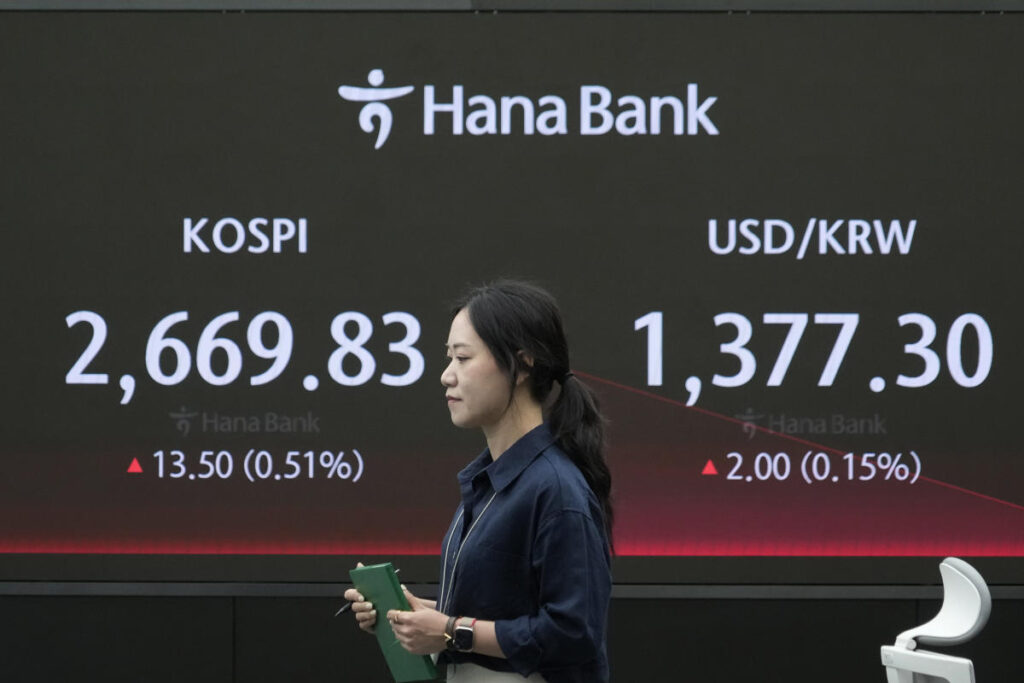TOKYO (AP) — Global stocks rose Monday amid optimism on Wall Street for a bull run that ended the week, even as all eyes were on the Federal Reserve's policy meeting scheduled for later this week. has risen.
France's CAC40 rose 0.3% to 8,109.22 in early trade, while Germany's DAX rose 0.2% to 18,198.89. Britain's FTSE 100 index rose 0.5% to 8,176.36. US stocks were on the rise, with S&P 500 futures up 0.2% to 5,144.00. Dow futures rose 0.2% to 38,509.00.
Sydney's S&P/ASX 200 rose 0.8% to 7,637.40. South Korea's Kospi rose 1.2% to 2,687.44. Hong Kong's Hang Seng Index rose 0.5% to 17,746.91, and the Shanghai Composite Index rose 0.8% to 3,113.04.
The Tokyo market was closed for trading due to the Showa Day holiday. A series of holidays known as Golden Week are approaching in Japan until Monday.
Stephen Innes, managing partner at SPI Asset Management, said the mood in the market had turned positive after last week's tech-driven rally on Wall Street.
A recent series of strong financial results have boosted market sentiment, but a weaker yen could be a risk factor, he added.
“Investors will be closely monitoring the latest developments in the highly volatile depreciation of the Japanese yen against the US dollar and other major currencies,” Innes said.
The yen hit a new 34-year low after the Bank of Japan decided to keep interest rates unchanged on Friday. This was expected, but what was unexpected was that the central bank clearly had no serious concerns about the exchange rate, Innes added.
In Monday's currency trading, the US dollar briefly rose to the 160 yen level, but then fell to 155 yen, raising speculation that the Bank of Japan would intervene in the market. The central bank did not comment on these developments. The finance minister declined to comment in response to questions from Japanese reporters.
“The medium-term impact of currency intervention is not a given unless it is backed by a more hawkish policy stance,” said Ipek Ozkardeskaya, senior analyst at Swissquote Bank.
In afternoon trading, the dollar was at 155.89 yen. The euro rose to $1.0724 from $1.0699.
For Japan's big exporters like Toyota Motor Corporation, a weaker yen could be a boon, boosting the value of overseas earnings when converted into yen.
However, a weaker currency can have a negative impact on the economy in the long run, as it reduces purchasing power and the potential for wage increases. Japan imports almost all of its energy.
Recent data on U.S. inflation has led analysts to expect the Federal Reserve to keep interest rates on hold. Key interest rates are at their highest levels since 2001. A report released on Friday showed that inflation remains high.
Fed officials have previously suggested there could be three rate cuts this year, after which the key interest rate will remain high for some time to ensure inflation is on track to its 2% target. states that it is possible.
In energy trading, benchmark U.S. crude oil fell 51 cents to $83.34 a barrel. Brent crude, the international standard crude, fell 73 cents to $88.77 per barrel.


